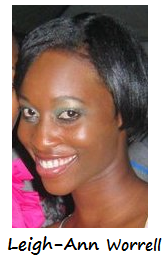 Thinking of it now, I must have given my family so much hell.
Thinking of it now, I must have given my family so much hell.
Barely 15, I stood at the front of the church my grandparents literally helped to build during a youth service and said that I thought it was unfair that wives should have to “submit” to anyone they had barely known for a couple years.
Then I said marriage was suppressive to women and vowed never to marry, because of my beliefs.
About three years later, at yet another youth service, I argued vehemently that abortion should be a woman’s choice, as the one who carried the child, an unpopular sentiment still held by the traditional congregation I grew up in. I also often queried why our small, predominantly female church was run by the slim majority of men, or why women who had children out of wedlock were in effect excommunicated as a matter of policy.
My grandmother told me to be quiet. My sister told me to trust the Lord. My mother, living in the States at that time, often heard about my questions from “the concerned”, and told me to behave.
I tried, but I couldn’t.
 While I am in no way saying that the aforementioned stances underpin all feminist belief, my strong opinions did lead me into finding out what women in academia had to say about these matters. That search eventually resulted in reading the stories of women making their mark around the world. I am intrigued by women who maybe like me, asked questions and never got the right answers; those who then took matters into their own hands and decided to do something about a situation that displeased them: lobbying for legislation, forming collectives and creating campaigns to inform and inspire.
While I am in no way saying that the aforementioned stances underpin all feminist belief, my strong opinions did lead me into finding out what women in academia had to say about these matters. That search eventually resulted in reading the stories of women making their mark around the world. I am intrigued by women who maybe like me, asked questions and never got the right answers; those who then took matters into their own hands and decided to do something about a situation that displeased them: lobbying for legislation, forming collectives and creating campaigns to inform and inspire.
This was one of the driving reasons behind the concept of Caribbean Catalysts for Change for International Women’s Day this year. The women highlighted here have all worked, or continue to work within their respective fields to bring about positive social change within the region; either as head of state or head of an organisation. Some are better known than others, but they are equally deserving of having their achievements honoured.
I hold the position that the “her-story” of the Caribbean has been largely underrepresented, and International Women’s Day is the best time to shout positive stories for justice, equality and rising to the top from the rooftops. And while we are up there, let us not forget about the many issues that need to be brought to the public’s attention, including the representation of women in the popular culture, the laws protecting us from domestic violence, rape as well as sexual harassment in the workplace.
These issues also underscore the need for a younger crop of female activists in the Caribbean to question, challenge, probe and research contemporary Caribbean life. And here comes me, Leigh-Ann: writer at heart, feminist by choice, hoping to someday be the change I want to see.
Leigh-Ann Worrell is a 24-year-old currently studying Contemporary Development at the Beijing Normal University. She possess a Bachelor of Arts in Media and Communication, with a minor in Gender and Development. She spent two years as a journalist in her home country, Barbados. Reading is one of her greatest joys.
